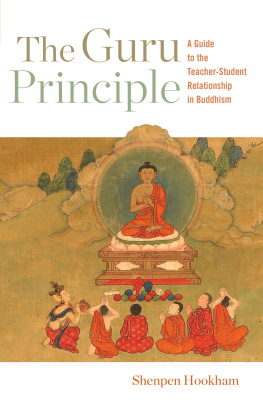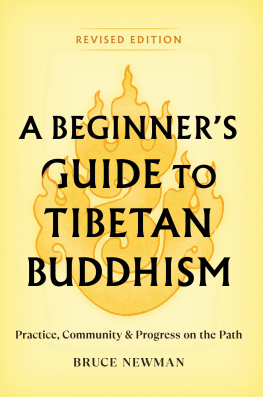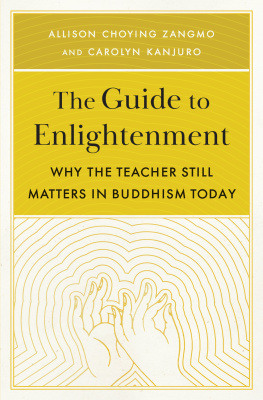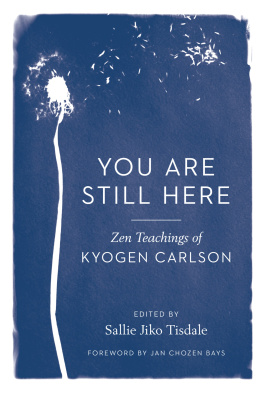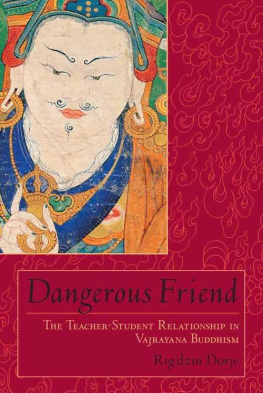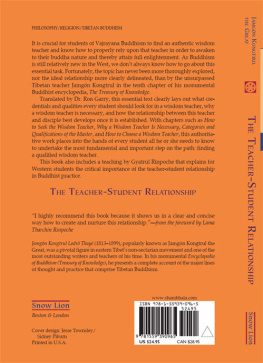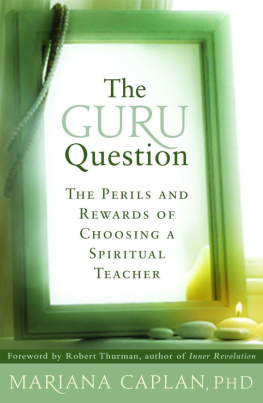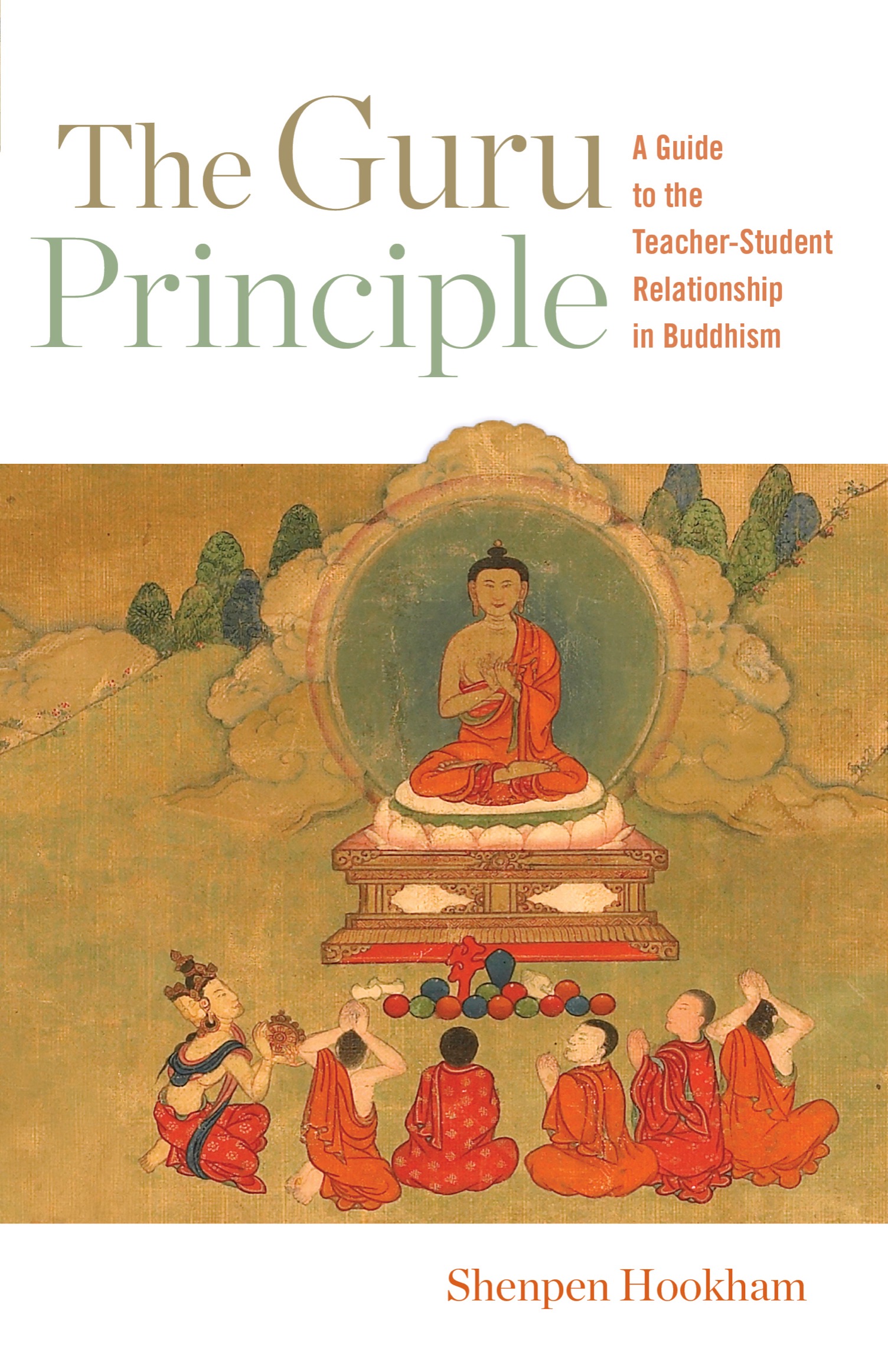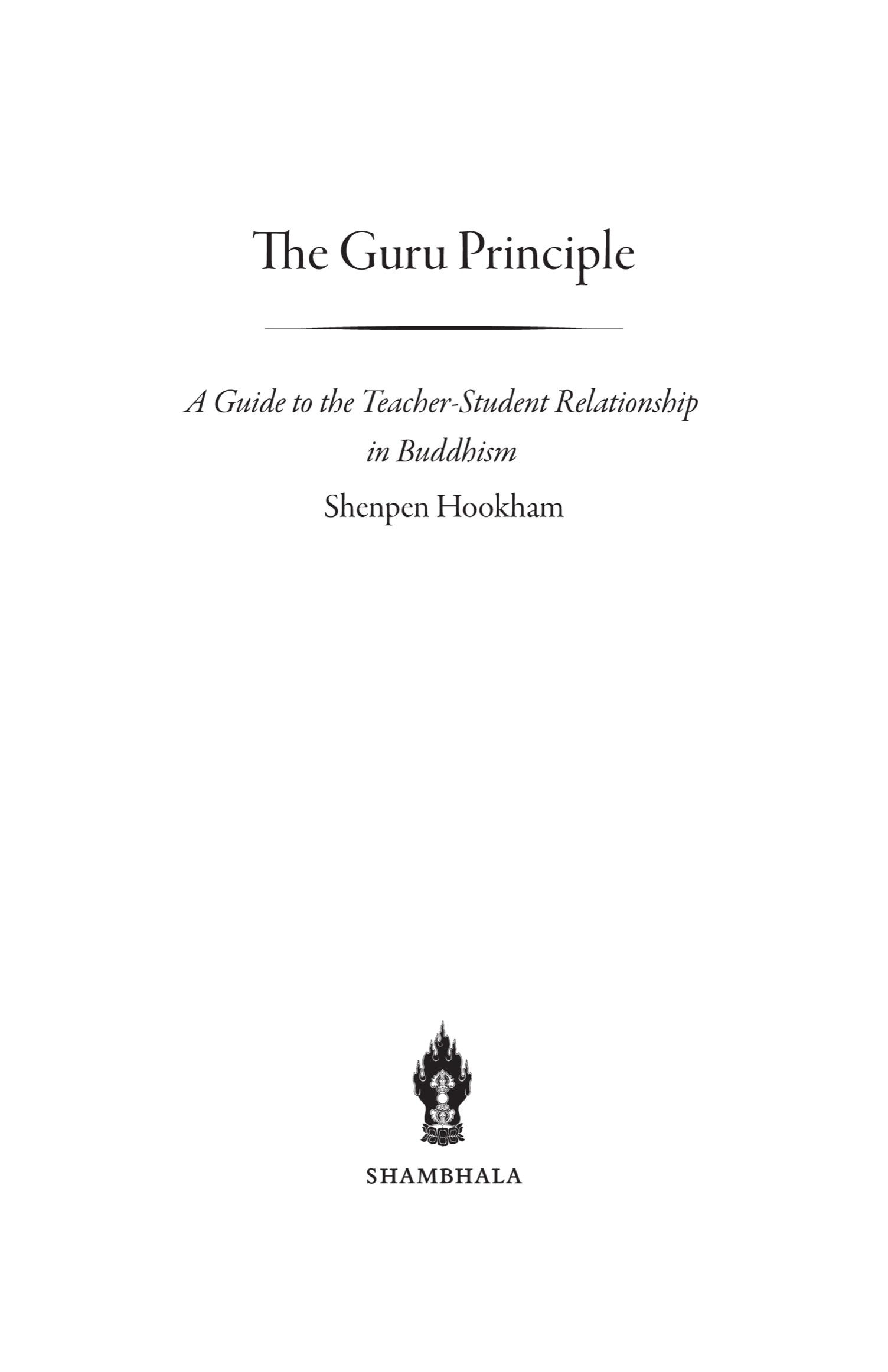Contents
Landmarks
Print Page List
P RAISE FOR T HE G URU P RINCIPLE
What is the meaning and role of a guru on the Buddhist path? This book offers a wealth of insight for students wishing to begin to understand the guru principle. Writing from vast experience and understanding of the topic, Lama Shenpen Hookham provides timely guidelines for discernment as one starts out on this journey of discovery. Beginning with the Buddha, the enlightened one, who taught that all beings could awaken to their enlightened nature, the significance of the guru in this process of awakening is explored in a wide range of traditional, contemporary, and cultural contexts. In the context of Buddhism in the West in particular, this ground provides a valuable support for an ever-deepening understanding of the guru principle.
Jetsun Khandro Rinpoche, author of This Precious Life
All major traditions of Buddhism seem to place emphasis on the importance of the teacher-student relationship. In the Vajrayana tradition, the teacher is called guru or one who dispels the darkness. Thus, the guru is considered to extend kindness to their students that excels the kindness of even the Buddha Shakyamuni himself, for it is through our own direct relationship with a genuine master that we can really begin to work out what the Buddha was trying to get at through his 84,000 groups of Dharma teachings. As much as the teacher-student relationship is indispensable, it is also not to be entered into lightlyeither by the teacher or the student. And, since it involves human beings, it can become confusing if not illuminated by skillful wisdom and compassion on each step of the journey.
Since this topic is so deserving of a thoughtful approach, I am very pleased that my Dharma sister, Lama Shenpen Hookham who possesses deep experience with both journeys of the student and the teacherhas offered this open-minded and comprehensive exploration of the key principles of the teacher-student relationship. Framing her presentation around key questions that may well dawn naturally in the mind of any curious practitioner, Lama Shenpen shares her insights and understanding generously and accessibly. I am confident that this skillful and kind guide will be of great benefit to many individuals who wish to make the wisdom of the Buddha a part of their lives.
Dzogchen Ponlop Rinpoche, author of Rebel Buddha and Mind Beyond Death
In her new book, The Guru Principle, Lama Shenpen Hookham gives important consideration to the roles of the guru and disciple, especially with regard to Vajrayana Buddhism. She calls on her years of experience as both a student and a teacher to clarify such issues as spiritual authority in Buddhism and how to choose a guru.
In an area where confusion and wrong views are rampant, Lama Shenpen skillfully helps to unravel many knotty points, shedding light and order on many misunderstood issues concerned with this controversial subject. This book can certainly be recommended reading for all those in search of a deeper understanding of the guru principle.
Jetsunma Tenzin Palmo, author of Into the Heart of Life
Lama Shenpen Hookham is not only an acclaimed scholar but also a well-known and highly respected teacher of Tibetan Buddhism. Guru has often been a misunderstood and sometimes misused term in the West. This book attempts to clear that mystery.
Ringu Tulku Rinpoche, author of Confusion Arises as Wisdom
When I first met Lama Shenpen in 1981, she was a very serious student of Buddhist philosophy. In those days, she was earning her PhD on the topic of the shentong view of Madhyamaka. She received many teachings, studied hard, and became quite knowledgeable about Buddhism in general, and especially Tibetan Buddhism. From a scholarly standpoint, she is particularly well versed in the shentong view. Lama Shenpen has also undertaken extensive retreat, so she has become a very good scholar-practitioner. I truly respect Lama Shenpen, as our world needs more and more scholar-practitioners like her. I believe her new book, based on her personal experience, will be very meaningful, authentic, and helpful to its readers. With love and blessings, Im pleased to recommend it.
Chokyi Nyima Rinpoche, author of Sadness, Love, Openness
The Guru Principle is an insightful and nuanced discussion of the roles of and relationships to teachers (gurus), where Lama Shenpen Hookham delves into crucial issues for all who practice living traditions of Buddhism. Forming a relationship with a teacher is a central part of the authentic transmission of the experiences and realizations leading to awakening, essential for every generation of Buddhists. But what is this relationship? What are the responsibilities of the student? Of the teacher? And what kind of teacher or teachers are we seeking? So often all this is wrapped in mystery, a bit vague or misunderstood, or it is simply not talked about in open, plain language.
With clarity, gentleness, and directness, Shenpen Hookham shares with us her decades of experience, observations, experimentation, and contemplations. The Guru Principle will help all of usWestern, Asian, students, and teachersnavigate our paths to awakening with greater grace and aplomb.
Elizabeth Callahan, translator of Moonbeams of Mahmudr
I welcome Shenpen Hookhams new book on the guru principle and the role of spiritual authority in Tibetan Buddhism. In exploring this topic, Hookham draws on traditional scriptural sources as well as on her own experiences and observations as an empowered Western teacher herself.
As this ancient tradition continues to take root beyond Tibet, it is critical to look deeply into the guru or teacher principle and how it can best take form in contemporary cultures and societies. Hookhams analysis is thorough, accessible, and extremely relevant to Buddhist students and teachers alike. Hookham discusses the unique challenges, questions, and uncertainty Western sanghas face in regard to the guru principle, and she offers a systematic approach to investigating the traditional roles and responsibilities of a teacher and the nature of the teacher-student dynamic.
Judith Lief, author of Making Friends with Death
Shambhala Publications, Inc.
2129 13th Street
Boulder, Colorado 80302
www.shambhala.com
2021 by Shenpen Hookham
The first part of chapter 2 was published as an article in Buddhist-Christian Studies 30 (2010): 12132 and is reprinted here with gratitude to the University of Hawaii Press.
All rights reserved. No part of this book may be reproduced in any form or by any means, electronic or mechanical, including photocopying, recording, or by any information storage and retrieval system, without permission in writing from the publisher.
LIBRARY OF CONGRESS CATALOGING - IN - PUBLICATION DATA
Names: Hookham, S. K., 1946 author.
Title: The guru principle: a guide to the teacher-student relationship in Buddhism/Lama Shenpen Hookham.
Description: Boulder: Shambhala, 2021. | Includes bibliographical references and index.
Identifiers: LCCN 2020040337 | ISBN 9781611809268 (trade paperback)
eISBN 9780834843622
Subjects: LCSH : Teacher-student relationshipsReligious aspects
Buddhism. | Buddhist educationMethodology. | Spiritual life
Buddhism. | BuddhismChinaTibet Autonomous RegionDoctrines. |

